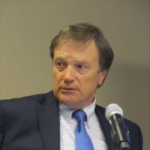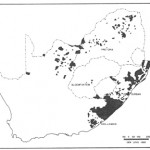The Imperative Of De-Escalation In Ukraine: Negotiations And Possible Solutions
No Comments yetIn the West, there are two different competing narratives about the war in Ukraine. The prevailing narrative is that it is a struggle between the “bad guys” and “good guys”. For many, Russia led by dictator Putin represents imperialism and is alone responsible for this unprovoked war, whereas Ukraine represents freedom and democracy as well as courage and heroism. The forces of evil must be won decisively by military means. The likelihood of a nuclear conflict is played down as it would lessen the resolve to reach a total victory.
If the Ukraine war is seen through moral prescriptions, as a struggle between good and evil, like in ancient Manichean thinking, we approach a very dangerous territory in the world of nuclear weapons. Russians have their own version of demonization, with an opposite view on locating the good and the evil. In this black-and-white, moralistic environment, only a few peace proposals have been presented while actors resort to increasingly harsh military measures, stricter sanctions and further escalation of conflict. Generals have become the oracles of the future and politicians and diplomats their servants. Is this really the future we want?
The minority or at least the less vocal view in the West is that reality is much more complicated than what the majority suggests. The unfortunate and short-sighted Russian invasion violates international law and has caused an enormous amount of suffering and turmoil, for the directly warring sides, for Europe, the US and the world, but this invasion was not unprovoked. While there are different ways of articulating the specifics of the narrative, this storyline involves the idea that also the West and the US in particular bear partial responsibility for the tragic outcome of the long process of mutual alienation and escalation of conflict between Russia and the West.[1]
What is more, the escalation has continued to a point where the world is verging on nuclear war. Nothing can justify a nuclear war and yet humankind is now becoming close to the darkest moment of the Cuban Missile Crisis, through brinkmanship and escalation. Nuclear war will be on the horizon unless a peaceful solution is found. China’s president Xi Jinping’s early November plea to stop making threats and prevent the use of nuclear weapons in Europe and Asia may have eased the rhetoric temporarily but is no substitute for the de-escalation of the conflict itself.
The proponents of the first narrative may respond that it is impossible to negotiate in good faith with the Putin regime. The point of ever more extensive military aid to Ukraine and deeper sanctions against Russia is also to undermine the Putin regime in the hope of the emergence of a more peaceful and democratic government in Russia. However, a coup d’état or a sudden revolution of some sort would likely lead to a destabilization of the Russian state, economy, and society. It is not only that we may be seeing a kind of return to the chaotic 1990s but there is also a possibility of dissolution of central political authority and fragmentation, civil strife, even war.
Many Western politicians and the bulk of media people seem to be thinking that the harder the sanctions the better because that will lead to some kind of a breakdown of the Russian economy leading to a regime change. But apart from the fact that the sanctions do not seem to be working the intended way, they hardly consider the consequences. Assuming a breakdown, even if someone would be able to again stabilize the situation in Russia, it is quite likely that the successor system will be a dictatorship, as the army and police are among the few coherent institutions that can keep the huge country from falling apart. Moreover, any loss of central control of Russia’s nuclear weapons would have nightmarish consequences.
Already during the Cold War, many researchers argued that the main danger lies in a situation, which is preceded by a steady erosion of trust and confidence. In this kind of scenario, a crisis may precipitate the first use of nuclear weapons, particularly if the initiator faces a desperate situation and believes that only nuclear weapons might provide an escape from certain defeat and death.[2]
The uncertainties and risks of the current situation have become increasingly blatant. Thus, while President Biden has criticized the Russian invasion harshly from the start, and including in his address to the UN General Assembly on 21 September 2022, the lessons of the Cuban Missile Crisis of the early 1960s seem to have started to resonate at the White House after mid-September. In his address at a fundraising dinner on September 29th Biden put forward some poking questions: “We’re trying to figure out: What is Putin’s off-ramp?” “Where, where does he get off? Where does he find a way out? Where does he find himself in a position that he does not — not only lose face but lose significant power within Russia?”
According to the New York Times[3], the main message that Mr. Biden seemed to be conveying is that he was heeding one of the central lessons of the Cuban Missile Crisis, which unfolded in October 1962. That lesson is that the United States and its allies need to avoid getting Mr. Putin’s back to the wall, forcing him to strike out. “It’s part of Russian doctrine”, he explained to the well-heeled crowd of potential donors to Democratic senatorial campaigns, that “if the motherland is threatened, they’ll use whatever force they need, including nuclear weapons.” This implies an understanding that if the Russians face continuous battlefield victories by NATO-assisted Ukrainian forces, the war will be in a political and military stalemate, where a nuclear strike becomes more and more likely, especially if the leaders’ political and physical survival is at risk.
The White House’s insistence that if Putin uses tactical nuclear weapons the US will respond “with catastrophic consequences” does not help defuse the approaching Armageddon. We do not know what these consequences mean in practice but General Petraeus, former CIA Director, has suggested striking Russian forces, installations and the Black Sea Fleet, destroying them completely with massive conventional arms. But that would be brinkmanship of the highest order. An attack against Russian forces by NATO countries allows or even might force Russia, according to its stated nuclear policy, to launch intercontinental ballistic missiles in return.
In 1962, after having vetoed various strike options proposed by the military – that we now know would have started a nuclear holocaust – President Kennedy eventually proposed a secret deal that was accepted by Soviet First Secretary Nikita Khrushchev. Kennedy suggested removing US nuclear missiles from Turkey secretly if Soviet missiles were removed from Cuba, publicly under UN monitoring. In addition, the US made a public declaration to not invade Cuba again.
During the Cuban crisis, President Kennedy estimated the probability of a nuclear war to be somewhere between one in three and one in two, while other participants in the crisis thought the probability was somewhat lower. Sixty years later, in 2022, we have already seen estimates that the probability of a nuclear war is approaching the heights of the 1962 crisis. For example, in October 2022, Matthew Bunn, Professor of the Practice of Energy, National Security, and Foreign Policy at the Harvard Kennedy School, estimated that the probability of the war in Ukraine turning nuclear is 10-20%.[4] These levels of likelihood are unacceptable. Former US Senator Sam Nunn “has also been sounding the alarm about the threat of an accidental nuclear exchange as a result of a cyber-attack on nuclear command-and-control systems — including by malign actors not directly involved in the conflict who could be confused for a nuclear adversary”[5].
The Nuclear Threat Initiative (NTI), a respected international institution established by Senator Nunn and Ted Turner, has for a long time advocated disarmament measures and military confidence-building measures. In face of the increasing escalation potential of the conflict in Ukraine, NTI published on 18 March 2022 a hypothetical scenario of how the world could plunder, unintentionally, into full-scale nuclear war through miscalculation and misinformation under the enormous pressure of the war, including mental and physical stress and sleep deprivation[6]. Numerous war games by the US department of defense and independent research institutions have also simulated the world moving unintentionally to nuclear war in hypothetical scenarios of war-like conditions between the US and Russia. And accidents become more likely when the war is prolonged as it is happening right now.
How to ensure in this dangerous situation that the nuclear war does not start intentionally or accidentally? The prospects are not promising because of the almost complete loss of trust and communication between Russia and NATO. In December 2020, a high-level group of 166 former generals, politicians, ex-diplomats and academics from the US, Europe and Russia, all concerned about increasing risks of nuclear and other military accidents, signed a report entitled ‘Recommendations of the Expert Dialogue on NATO-Russia Military Risk Reduction in Europe’[7]. The talks continued in a smaller group but unfortunately have essentially been moribund after the Russian invasion of Ukraine.
In this serious situation of potential nuclear escalation, the UN Secretary-General could resort to a rarely used leadership measure the founders of the UN Charter endowed to him: the use of Article 99 of the Charter[8]. The Article says that the Secretary-General can “to bring to the attention of the Security Council any matter which in his opinion may threaten the maintenance of international peace and security.” It is in fact difficult to imagine a more urgent and appropriate use of Article 99 than the increased risk of nuclear war in Ukraine. Secretary-General Antonia Guterres has himself said that nuclear tensions are climbing to dangerous levels in his speech at a UN Alliance of Civilizations meeting in Morocco in November 2022.[9] Nuclear Threat Initiative could brief the Council, officially or informally, about the increased risks and propose that the seven recommendations by the NATO-Russia Nuclear Risk talks referred to above should be implemented to the maximum degree possible and official disarmament talks should also be urgently resumed.
We also believe in a nearly absolute and unconditional requirement to de-escalate the conflict through negotiations. This is a war between Russia and Ukraine, with intensive NATO involvement and with long-deteriorating US-Russia relations looming in the background. Any peace agreement must be negotiated by the relevant participants and with appropriate third parties.
On 11 November 2022, the Foundation for Global Governance and Sustainability issued a Call for Armistice in Ukraine. So far five heads of State of Government have co-signed it.[10] The initiative asks for a transition from a general cease-fire to a final peace settlement between Russia and Ukraine which is to be supervised by the United Nations and possibly other international organizations, such as the OSCE. Demilitarization of the occupied areas and a larger demilitarized zone of disengagement between the armed forces of the belligerents could be a part of a wider agreement. The plan also calls for immediate efforts to be focused on repairing civilian infrastructure, including in the areas to be placed under temporary international administration, and on securing an adequate supply of food, water, health care, and energy for the inhabitants.
This is an example of a constructive proposal that stresses the role of common institutions and goes beyond thinking in terms of simple territorial concessions either way. In particular, the option of using the United Nations’ presence in Ukraine is an already much-tested model for the de-escalation of the war and building the elements for peace. Instead of seeing the conflict as a mythic struggle between good and evil, what is needed is a sense of nuance, context, and reciprocal process. The reliance on common institutions and especially the potential of the UN presence on the ground as a tool for de-escalation would be a step in the right direction – even if only a small step in the long march toward a more sustainable and desirable future.
Notes:
[1] For discussions on this point, see Tuomas Forsberg and Heikki Patomäki, Debating the War in Ukraine. Counterfactual Histories and Future Possibilities, Abingdon and New York: Routledge, forthcoming in Dec 2022.
[2] Rudolf Avenhaus, Steven J. Brams, John Fichtner and D. Marc Kilgour, ‘The Probability of Nuclear War’, Journal of Peace Research, 1989, Vol. 26, No. 1, p. 91.
[3] David E Sanger, “In Dealing with Putin Threat, Biden Turns to Lessons of Cuban Missile Crisis”, New York Times, October 7th, 2022.
[4] View expressed in an NPR interview on 4 October 2022, summary available at https://www.npr.org/2022/10/04/1126680868/putin-raises-the-specter-of-using-nuclear-weapons-in-his-war-with-ukraine.
[5] Bryan Bender, “How the Ukraine War Could Go Nuclear”, Politico, 24 March 2022.
[6] Christopher Coletta, “Blundering into a Nuclear War in Ukraine; a Hypothetical Scenario”, Atomic Pulse, Nuclear Threat Initiative, 18 March 2022. Available at https://www.nti.org/atomic-pulse/blundering-into-a-nuclear-war-in-ukraine-a-hypothetical-scenario/.
[7] European Leadership Network, “Recommendations from an experts’ dialogue; de-escalating NATO-Russia military risks”, 6 December 2020.
Available at https://www.europeanleadershipnetwork.org/group-statement/nato-russia-military-risk-reduction-in-europe/
[8] See Tapio Kanninen and Heikki Talvitie,” How to Move the UN Security Council from Hostility to Cooperation”, PassBlue, 22 November 2022, Available at https://www.passblue.com/2022/11/21/how-to-move-from-hostility-to-cooperation-in-the-un-security-council/.
For the history of the use of Article 99 see https://www.securitycouncilreport.org/monthly-forecast/2019-08/in-hindsight-article-99-and-providing-the-security-council-with-early-warning.php
[9] “UN Chief: Nuclear tensions climbing to dangerous levels”, Global Affairs, SmartBrief, 23 November 2022.
[10] The Call is available at https://www.foggs.org/armistice-call-11-nov-2022/.
Heikki Patomäki is a social scientist, activist, and Professor of World Politics at the University of Helsinki. He has published widely in various fields including philosophy, international relations and peace research. Patomäki’s most recent book is The Three Fields of Global Political Economy (Routledge 2022) and, with T.Forsberg, Debating the War in Ukraine. Counterfactual Histories and Possible Futures (Routledge 2023). Previously he has worked as a full professor at The Nottingham Trent University, UK, and RMIT University, Melbourne, Australia, and as a Visiting Professor at Ritsumeikan University, Kyoto, Japan. He is a member of the Finnish Academy of Sciences; a Life Member of Clare Hall, University of Cambridge; and Vice Chair of EuroMemo, a network of European (political) economists.
Dr. Tapio Kanninen, former Chief of Policy Planning at the UN’s Department of Political Affairs in New York, is a member of the Advisory Board of the Foundation for Global Governance and Sustainability (FOGGS). He is also currently President of the Global Crisis Information Network Inc. and a founding member of Climate Leadership Coalition Inc. His latest book is Crisis of Global Sustainability (2013). While at the UN, Kanninen also served as Head of the Secretariat of Kofi Annan’s five Summits with Regional Organizations that also included military alliances like NATO.
You May Also Like
Comments
Leave a Reply









